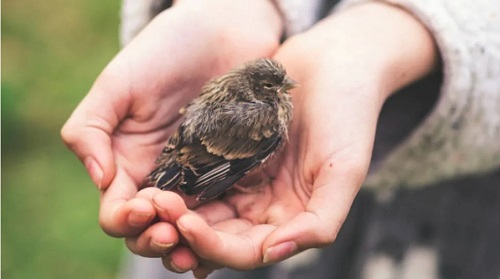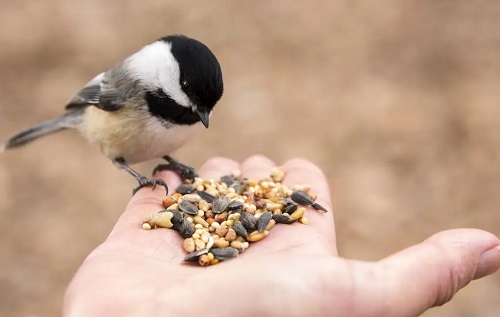Making baby bird food at home can be an essential skill for anyone caring for young birds, especially if you’re dedicated to their health and growth. Understanding how to make baby bird food ensures that you’re providing the necessary nutrition for their development. This guide will walk you through the ingredients you’ll need, the best recipes to try, and the proper way to prepare the food. By learning how to make baby bird food, you’ll be better equipped to support your baby birds from hatchlings to juveniles. Let’s dive straight into the steps and ingredients you’ll need to make nutritious baby bird food at home.

What Ingredients Do You Need to Make Baby Bird Food?
Choosing the Right Base Ingredients
The first step in learning how to make baby bird food is selecting the right base ingredients. The base should consist of easily digestible grains or cereals, such as baby cereal, soaked bread, or soft fruits. These ingredients provide essential carbohydrates, giving the baby birds energy to grow. Ensure that the base is smooth and easy to consume, avoiding any hard or large pieces that could pose a choking hazard.
Adding Protein Sources for Optimal Growth
Protein is crucial for the development of baby birds, so it’s vital to incorporate high-protein ingredients into their diet. Options include boiled eggs, finely chopped cooked chicken, or insects like mealworms. These sources are rich in the amino acids necessary for muscle and feather growth. When preparing these protein sources, make sure they are finely chopped or mashed to make them easy for the baby birds to eat.

Essential Supplements to Include
In addition to a balanced base and protein, essential supplements are necessary to ensure complete nutrition. Calcium powder is important for bone development, while vitamins like A, D, and E support overall health. You can sprinkle these supplements into the food mix in small amounts. Additionally, a few drops of cod liver oil can provide the necessary omega-3 fatty acids for healthy skin and feathers. Always ensure the supplements are thoroughly mixed to avoid any imbalances in the diet.
What Are the Best Recipes for Baby Bird Food?
High-Protein Recipe for Nestlings
For nestlings that require a high-protein diet, a mixture of boiled egg yolk, baby cereal, and mashed insects like mealworms can provide the necessary nutrients. Blend these ingredients until smooth, adding a little water if the mixture is too thick. This recipe ensures the baby birds receive the proteins and fats required for rapid growth during this critical stage of their development.
Easy-to-Digest Recipe for Hatchlings
Hatchlings need a soft, easy-to-digest food that won’t overwhelm their delicate digestive systems. A blend of soaked bread, mashed fruits like bananas, and a small amount of calcium powder creates a perfect starter diet. This recipe is gentle on their stomachs while still providing the essential nutrients they need. Ensure the mixture is free of lumps to make it easier for the hatchlings to swallow.
Balanced Diet Recipe for Juvenile Birds
As birds grow into juveniles, their dietary needs change, requiring a more balanced diet. A recipe combining softened pellets, mashed fruits, and finely chopped cooked chicken offers a mix of carbohydrates, vitamins, and proteins. This recipe helps support continued growth while preparing the birds for a more varied diet as they mature. Mix the ingredients thoroughly to ensure an even distribution of nutrients in each bite.
How to Prepare Baby Bird Food at Home?
Step-by-Step Preparation Process
Preparing baby bird food at home requires careful attention to detail. Start by gathering all your ingredients, ensuring they are fresh and free from contaminants. Measure each ingredient according to your chosen recipe, then blend or mash them until smooth. Consistency is key; the food should be soft enough for the baby birds to swallow easily. If the mixture is too thick, add water gradually until you reach the desired texture.
Tips for Safe Handling and Hygiene
When preparing baby bird food, maintaining proper hygiene is crucial to prevent bacterial contamination. Always wash your hands and utensils thoroughly before starting. Use clean containers to store the food, and never leave it out for too long. If the food needs to be refrigerated, ensure it is sealed tightly to avoid spoilage. Safe handling practices are vital to keeping your baby birds healthy and thriving.
Storing Homemade Baby Bird Food
Proper storage of homemade baby bird food ensures it remains fresh and nutritious. Store any unused portions in an airtight container in the refrigerator, but use them within 24 hours to prevent spoilage. If you need to store the food for longer, consider freezing individual portions in ice cube trays, which can be thawed as needed. This method preserves the food’s nutritional value while ensuring you always have a ready supply on hand.
Conclusion
Learning how to make baby bird food is an essential skill for anyone caring for young birds. By understanding the right ingredients and preparation methods, you can provide the necessary nutrition for their growth and development. From choosing the best base ingredients to adding the right supplements, each step plays a crucial role in ensuring the health of your baby birds. Whether you’re feeding hatchlings, nestlings, or juveniles, following these guidelines will help you create balanced, nutritious meals that support their growth. Now that you know how to make baby bird food, you can confidently care for your young birds, ensuring they thrive and grow strong.
FAQ
1.What should I avoid when making baby bird food?
Avoid using ingredients like dairy products, which can upset a bird’s digestive system. Also, steer clear of processed foods or those with added sugars and salts, as these can be harmful to baby birds.
2.Can I use store-bought baby food for baby birds?
While some store-bought baby foods may be suitable, it’s crucial to check the ingredients first. Avoid those with added sugars, salts, or preservatives. Homemade options are often better as they can be tailored to the specific needs of your baby birds.
3.How do I know if the baby bird food is the right consistency?
The right consistency should be smooth and free of lumps, making it easy for the baby birds to swallow. If the mixture is too thick, add a small amount of water until it reaches a paste-like consistency that’s neither too runny nor too solid.
